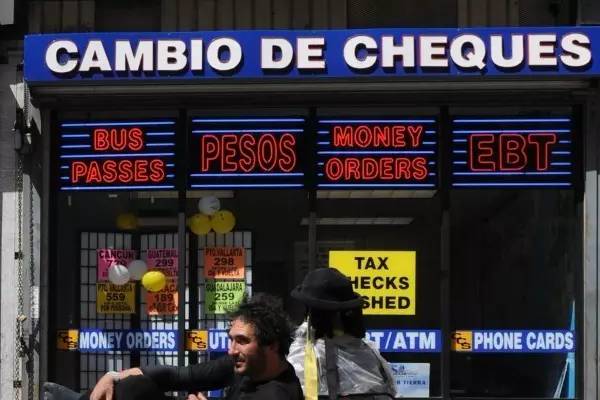✅ most of its advertising partnerships since July because of the harm spent on online advertising


A payday loan store in Los Angeles (MARK RALSTON/AFP/Getty Images)
On Wednesday, Google, the international search engine giant, announced that it would ban payday loan advertising. Google says the move is designed to protect consumers from deceptive and harmful financial products. The industry has been criticised by planners and consumer groups.
David Graff, Google's director of global product policy, said: "When we reviewed our policies, we found that these loans could lead to unsustainable payments and high default rates for users, so we updated our global policy. "
Google bans ads with an annual interest rate of more than 36%.
The ban, which will take effect on July 13, applies to ads that require repayment of loans within 60 days. Google also said it would ban advertising with annual interest rates above 36% in the U.S. (only in the U.S.). Graff stressed that the policy does not apply to companies that offer mortgages, credit card loans, auto loans, student loans, and commercial loans.
Google has a broader policy against "bad ads". Last year, the company stopped more than 780 million ads for everything from fakes to phishing scams. Mr. Graff says financial services advertising is an area to be particularly vigilant about.
The Consumer Financial Protection Bureau will also regulate
About 2.5 million households in the U.S. use payday loans each year, according to a 2013 survey by the Federal Deposit Insurance Corporation. The Consumer Financial Protection Bureau says payday lenders can earn $8.7 billion a year in profits and fees. To that end, the Financial Protection Bureau is setting new rules for payday loans as part of its efforts to crush short-term usury.
Americans trapped in cash flow, especially those on low incomes, often turn to such loans to help pay for debt or other spending.
But the Financial Protection Bureau and consumer advocacy groups say this could plunge borrowers into a vicious circle of relying on new loans to pay off old ones. This predatory lending trap can end up costing borrowers a lot more than they originally borrowed. Google has also been under pressure from organizations such as the Citizens and Human Rights Leadership Conference to ban payday loans.
Wade Henderson, the group's chairman, welcomed Google's decision on Wednesday. These financial firms have long used cunning advertising and aggressive marketing tactics to trick consumers into usury, and borrowers tend to be the least able to afford it.
Dangerous advertising is banned
In addition to payday loan ads, Google bans ads deemed dangerous, including bombs, guns, tobacco, recreational drugs and devices. Google users can still search for payday loans, but such ads will not appear at the top of the search results page. Previously, payday lenders had been able to use Google's AdWords program to buy ads at the top of keyword search results.
The Community Financial Services Association, a business group for the payday lending industry, called Google's decision discriminatory and censored. The group says the Internet is about freely spreading ideas and enhancing business communication, and that Google is making an overall assessment of the payday lending industry.
In fact, it's not just Google, other social networking sites are rejecting payday loan ads. Facebook has also put in place policies to block ads for payday loans, advance salaries or other short-term loans that typically offer borrowers the cost of the next payday, according to the social media site.
Source/Overseas Network Editor/L
Recommended reading:
❗️ emergency! The amount of meat infected with deadly germs, a full recall list to see this
✅ U.S. Immigration and Immigration Department is about to conduct a 30-day arrest and deportation!
✅ H1B didn't get to go home? Take this post and you'll be able to stay in the U.S. legally
✅ the top 10 fastest growing cities in the U.S. in 2016?